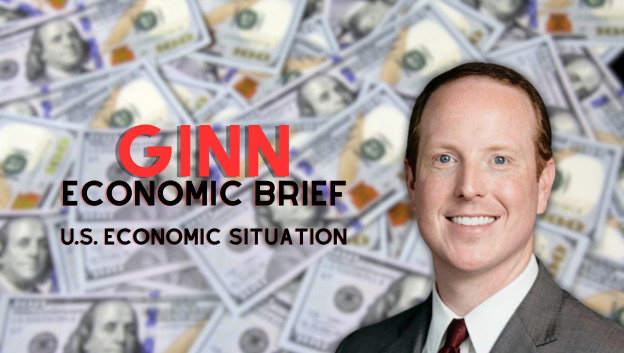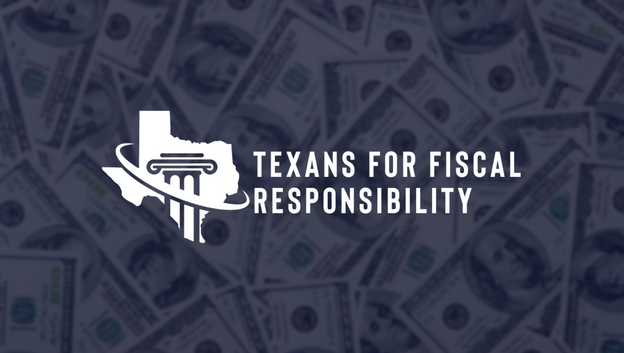
Unlocking Prosperity: Steering America Back to Free-Market Fundamentals
As the latest economic indicators from April 2024 unfold, it’s becoming alarmingly clear that America’s path to prosperity is at a critical juncture. A steadfast return to free-market capitalism with limited government is not just a choice but an urgent necessity. In the face of fluctuating, weakening economic conditions, a pivot towards policies that promote market-driven growth rather than big-government socialism is imperative. This shift is crucial to counteract the current trend of governmental overreach, which is stifling innovation, profitability, and efficiency.
April’s labor market update provided a mixed bag of results.
While an increase of 175,000 in nonfarm payroll employment was reported, the government added 8,000 jobs, bringing the increase to 618,000 (+2.7%) over the last year. This underscores a continuing trend of government expansion faster than the productive private sector by 2.2 million or by just 1.6%. Furthermore, the household employment figures tell a concerning story of a stagnant labor force participation rate of 62.7%. This stagnation indicates that a large part of the potential workforce remains on the sidelines, artificially lowering the unemployment rate and obscuring deeper systemic issues.
The latest GDP data for Q1 2024 revealed a growth rate of just 1.6% on an annualized basis, indicating that the economic recovery is still on shaky ground. When government spending was excluded, real private sector growth was even more lackluster at 1.4%. There is a critical need for genuine market-driven growth rather than relying on fiscal or monetary ‘stimulus’ that fails to ignite real economic dynamism. It’s a clear call for a return to free-market capitalism.
Inflation continues to erode the economic landscape, with the Consumer Price Index rising by 3.5% year-over-year for April. This persistent inflation is coupled with a troubling decline in inflation-adjusted average weekly earnings, which have fallen by a large 4.4% since January 2021, when Biden took office. This decline in purchasing power strains American households, making the case for immediate inflation control measures more compelling than ever.
The regulatory environment under the current administration has also become a significant burden. An estimated $1.6 trillion in new regulations have been added since President Biden took office, further hindering economic activity. This increase across various sectors, including banking and anti-trust enforcement by the Federal Trade Commission, Federal Deposit Insurance Corporation, Federal Reserve, and Consumer Financial Protection Bureau, has introduced considerable uncertainty and constrained economic vitality.
The nation’s fiscal situation is also a growing concern, with the Monthly Treasury Statement for April 2024 showing significant budget deficits that continue to burden future generations. Coupled with the Federal Reserve’s latest meeting minutes, which reveal ongoing concerns about inflation and economic stability, and the size of the bloated Federal Reserve’s balance sheet, it’s clear that fiscal and monetary policies are distorting and destroying sustainable growth.
The U.S. must champion policies that reduce government intervention to navigate these turbulent waters. This involves cutting government spending, easing regulatory burdens, and reforming and simplifying taxes to foster economic growth and innovation. Adopting a fiscal rule such as Americans for Tax Reform’s Sustainable Budget Project and advocating for a monetary policy rule that curtails the Federal Reserve’s market interventions would help pave the way for a more stable and prosperous economic future.
The time is ripe for America to recommit to the principles that have historically underpinned its economic success: trust in market mechanisms, empowerment of individuals, and a significant reduction in government’s coercive roles. By advocating for a return to these fundamentals, we can ensure that the economy not only recovers but also thrives in a manner that benefits the broadest swath of society. As we look forward, let’s rally behind policies repeatedly proven to be the bedrock of prosperous, resilient economies.
Texans for Fiscal Responsibility relies on the support of private donors across the Lone Star State in order to promote fiscal responsibility and pro-taxpayer government in Texas. Please consider supporting our efforts! Thank you!
Get The Fiscal Note, our free weekly roll-up on all the current events that could impact your wallet. Subscribe today!




